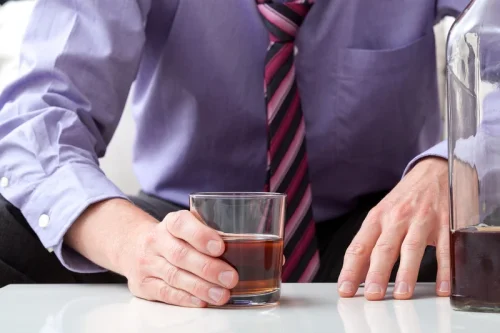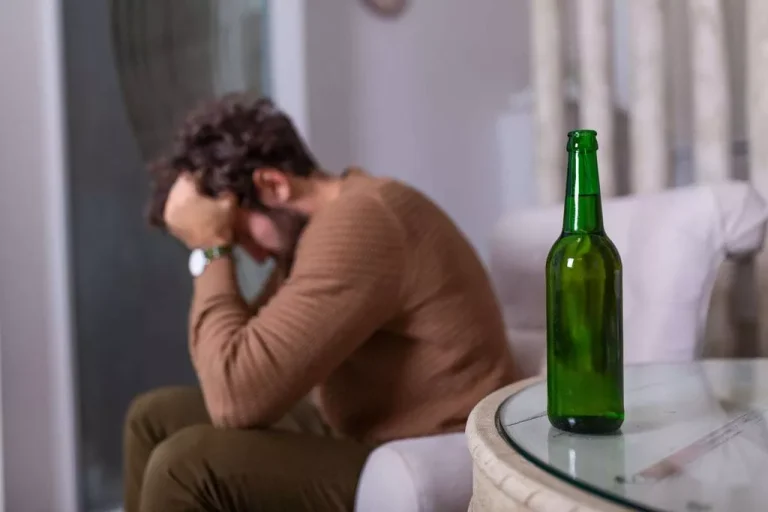Likewise, nuts and seeds which are rich in protein and healthy fats can keep you satiated and help in balancing your blood sugar levels. Understanding that the desire for sweets following alcohol abstinence is a normal phenomenon is the first step towards managing it effectively. Being proactive and employing techniques such as mindful eating, hydrating, and exercising regularly will then adequately arm you to cope with your sugar cravings.
Understanding Sugar Cravings in Recovery
“With these drugs there’s also a risk of developing pancreatitis,” she says. “A person with alcohol use disorder may be at [elevated] risk for pancreatitis. So a doctor would need to monitor that.” Turns out, these drugs (as well as the GLP-1 hormone) don’t just work on blood sugar. “They also work in your brain,” says Dr. Lorenzo Leggio, who’s the clinical director of the National Institute of Drug Abuse. As you build a balanced diet, be aware that there are added sugars lurking in most highly processed foods.
The Impact of Sugar Cravings on Your Recovery Journey
- Discover what is speed drug, its risks, effects, and legalities.
- Understanding these factors can help individuals in recovery better manage their sugar cravings.
- As you build a balanced diet, be aware that there are added sugars lurking in most highly processed foods.
- This reward response can create a powerful craving for both substances.
The premise is that, after an initial period of “withdrawal,” you’ll no longer crave sweets the way you do now. We already know that a good night’s sleep is crucial to our health. But not nearly enough of us realize how connected our sleep habits are to our sugar cravings. From opioids to alcohol, uncover the truth about substance abuse and brain health.
Introspection in Recovery
Given that sugar intake can trigger dopamine release, it is common for recovering alcoholics to turn to sugary foods to satisfy this craving. To counteract the drop in blood sugar, the body may trigger sugar cravings as a means to restore glucose levels and provide an immediate source of energy. However, consuming sugary foods or beverages can lead to a sharp increase why do alcoholics crave sugar in blood sugar levels, followed by another rapid drop, perpetuating the cycle of sugar cravings. By finding a balance between addressing sugar cravings and maintaining overall health, individuals in recovery can manage their sugar intake effectively. It’s important to remember that everyone’s journey is unique, and what works for one person may not work for another.
Ways to Reduce Alcohol Use
Put simply, sugar activates the reward and pleasure centers of our brains the same way addictive substances do. Consuming too much sugar on a daily basis can lead to weight https://ecosoberhouse.com/ gain, tooth decay, gut dysbiosis, skin problems, and type 2 diabetes. The strategy of using sugar to help drug cravings should be used temporarily and in moderation.
What is Zohydro Addiction?
Here’s a compilation of strategies that can help you navigate through the sugar cravings. Awareness that craving sweets is not a failure or a weakness, but a physiological response, will contribute to reducing guilt. This understanding might even augment your confidence in the journey towards sobriety.
- Discover the difference between substance abuse treatment centers vs addiction treatment centers.
- Consuming sugar-rich foods triggers the release of dopamine in the brain, providing a temporary boost in mood and pleasure.
- Holistic approaches in recovery from alcohol addiction involves the integration of physical, emotional, and mental aspects.
- Explore “what is drug therapy?”, its various types, and how it’s transforming lives in the realm of healthcare.
- Those advised to avoid sugar reported higher abstinence rates (83%) compared to those told to consume a balanced diet (58%) or to use sweets to cope with alcohol cravings (53%).
- Studies show that individuals who are overweight may experience more severe depression, making them more susceptible to alcohol relapse.
Research suggests that sugar addiction and alcoholism are closely intertwined. The consumption of sugar can trigger cravings for alcohol and vice versa, posing challenges for individuals in recovery. Sugar cravings may trigger a relapse or hinder recovery efforts, making it essential for recovering alcoholics to be aware of their sugar intake and seek professional help when needed [3]. Therapy can also play a vital role in addressing underlying emotional issues that may contribute to sugar cravings.
Discover the three features of the best drug rehab centers to ensure successful recovery and wellness. Explore student opioid addiction rehab options, from medications to tailored therapies, for reclaiming lives. Discover why an inpatient drug rehabilitation center isn’t always the answer; explore alternatives for recovery. Discover addiction help at PA rehabilitation centers, journey from darkness to recovery starts here. Uncover early signs of alcoholism in a loved one, understand its impact and learn how to seek help.
Coaching can provide individualized strategies factoring your particular state and needs. To start with, the practice of mindful eating might be the tool you need to manage sugar cravings. This entails pausing before eating and acknowledging the reasons for your cravings.
Ozempic seems to curb cravings for alcohol. Here’s what scientists think is going on
Dopamine is a neurotransmitter made in the brain and is released in response to a reward or pleasurable experience. Sugar tastes great, and eating or drinking it is rewarding since it causes dopamine release. Alcohol is naturally obtained by fermenting sugar, which is why alcohol and sugar trigger similar reactions in the brain. Both cause a release of dopamine, which causes happy feelings. Elisabet Jerlhag at the University of Gothenburg notes that people with obesity tend to have less severe side effects while taking semaglutide than people who don’t have obesity.





